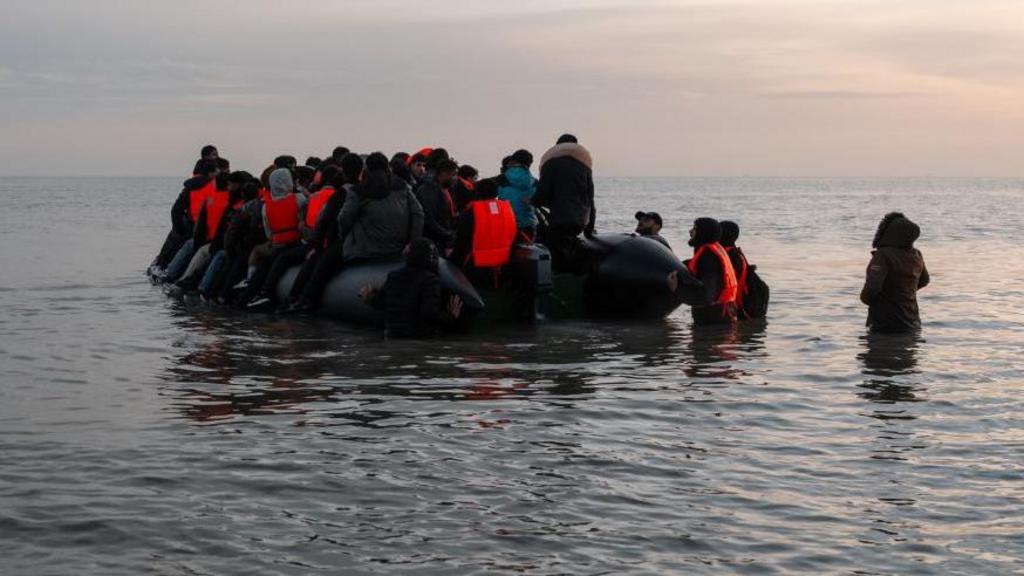The Home Office has announced it will allocate funding for 300 additional National Crime Agency (NCA) officers, aimed at disrupting human smuggling operations facilitating English Channel crossings.
This expansion will be supported by a £100 million allocation from the department’s existing budget, alongside investments in new technologies and resources.
As of the end of July, over 25,000 individuals have made the journey from France to the UK via small boats, marking a record high for this period of the year.
Home Secretary Yvette Cooper stated that this initiative would bolster the UK’s ability to “track the [smuggling] gangs and bring them down.” The Conservative Party, however, has criticized the move as a “desperate grab for headlines which will make no real difference.”
Given the unprecedented number of crossings, the government is under pressure to demonstrate effective measures to reduce the flow of individuals attempting to cross the Channel.
While Sir Keir Starmer has avoided a specific pledge to “stop the boats,” as previously voiced by Conservative leader Rishi Sunak, his advisors recognize the need to deliver on his promise to “smash the gangs.”
The government is also addressing the visible impacts of the issue within the UK, committing to close all asylum hotels before the next general election and expedite the appeals process for rejected asylum seekers.
A “one in, one out” pilot scheme is expected to be signed with France later this week, aiming to discourage migrants from attempting Channel crossings.
Under this scheme, some arrivals would be returned to France, and in exchange, the UK would accept a corresponding number of asylum seekers, contingent on security checks.
Speaking on BBC Breakfast, Border Security and Asylum Minister Angela Eagle refrained from specifying the number of individuals to be returned to France.
She noted the absence of a returns agreement with the EU following Brexit, stating, “At the moment, we’re not in a position from a standing start to return absolutely everybody.”
“There is no easy, one-step solution – it’s a complex problem that’s been allowed to take hold of our borders for six years.”
The Home Office intends to target leading figures in smuggling networks that operate across Europe, the Middle East, Africa, and other regions.
Cooper emphasized that these gangs have demonstrated “a ruthless ability to adapt their tactics and maximise their profits, no matter how many lives they put at risk.”
According to the NCA’s Director General of Operations, Rob Jones, the agency currently has 91 active investigations into people-smuggling networks affecting the UK.
Downing Street clarified that the 300 additional NCA posts would complement the extra specialist investigators and intelligence officers announced in the previous year.
Shadow Home Secretary Chris Philp accused Labour of presenting “no serious plan” to address the issue.
“The British public deserves real action, not empty slogans and tinkering at the edges,” he said.
Writing in the Daily Express, Reform UK leader Nigel Farage characterized the effort as an attempt to “throw taxpayer money at the illegal immigration crisis and hope it will go away.”
“Another £100 million here or there won’t move the needle. It won’t stop the boats or the gangs,” he added.
Both Labour and previous Conservative governments have faced challenges in reducing the number of individuals entering the UK illegally via small boats.
The Conservatives had proposed sending arrivals to Rwanda, but the scheme was delayed by legal challenges, and the general election was called before its implementation.
One of Sir Keir Starmer’s first actions as Prime Minister was to abandon the plan, deeming it a gimmick.
In another measure revealed on Sunday, individuals advertising illegal Channel crossings online could face up to five years in prison under a new offense planned by the government.
Assisting illegal immigration to the UK is already a criminal offense; however, officials believe the new offense would provide law enforcement and other agencies with increased authority to disrupt criminal organizations.
It would criminalize the creation of material for online publication that promotes or offers services facilitating violations of UK immigration law.
This would encompass individuals utilizing social media to advertise fraudulent passports or visas, or promising illegal employment opportunities in the UK, and could result in significant fines as well as imprisonment.
The government has also confirmed that, starting next month, it will tighten regulations aimed at preventing migrants from exploiting university study as a means to enter the UK with the intention of later claiming asylum.
Under these plans, universities will be subject to stricter visa refusal and course completion rate requirements to maintain their ability to sponsor future visas.
Universities UK has advocated for “improved, real-time data sharing” with the Home Office to enable institutions to “respond proactively to emerging risks.”
Sign up for our Politics Essential newsletter to keep up with the inner workings of Westminster and beyond.
Dozens are missing after a boat carrying more than 150 migrants, many believed to be Ethiopian, sank in bad weather.
A year after anti-migrant protests, two rioters tell BBC Panorama about their motives and regrets.
Housing asylum seekers in Hull’s Royal Hotel continues to be a divisive issue.
Anti-migrant groups and counter demonstrators gather in London, Newcastle and Manchester.
The court says the way Italy defines a “safe” country breaks EU law.

